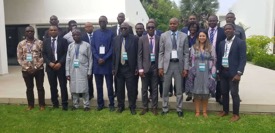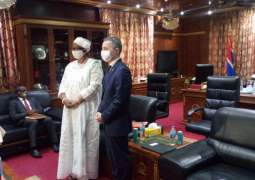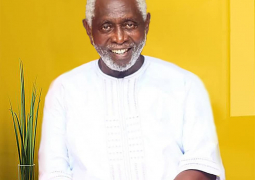
The main objective of the seminar is to share experiences and take stock of the recent economic situation and the macroeconomic estimate for the year 2022, forecasts for 2023 and projections for 2024-2025. It also seeks to contribute to the efforts made to inform the monitoring of the macroeconomic convergence in ECOWAS countries and to orient national and sub-regional policy development and programmes.
Representative of the ECOWAS Commission, Iliyasu M. Bobbo, stated that following the devastating impact of Covid-19 in 2020, the economy of the region rebounded and 2020 contracted by 0.8% while in 2021, registered a growth rate of 4.2%.
He added that the recovery, largely attributed to all member states driven mainly by agriculture, export of raw materials, and activities in the service sectors, especially the transport and hospitality industry.
“Member states’ Central Banks also played role in the economic recovery of 2021. The current inflation pressure in the region has forced most of the banks to revise the trend, including accommodating monetary policy.”
He continued that the current global economic context marked by the investigation of inflationary pressures due to the Russia-Ukraine crisis and the spread of this crisis beyond Europe through commodity trade has already led to the downgrading of the global growth by the IMF from 6.1% to 3.2%. He said inflation has also been upgraded to 8.3%.
On the ECOWAS single currency programme, he explained that the region has made progress in the areas that are very crucial to the launching.
Alhagie Fadera, director of Planning at the Ministry of Finance also stated the importance of the seminar because as countries, they commit themselves to evidence-based policy and planning for the availability of reliable data.
“Timely data is very important if we are going to adequately formulate policies but also plans and strategies to address the development agendas that we face.”
He added that Africa is confronted with the Ukraine war, insecurity in West Africa, and climate change which is having a significant impact on our development. These entire combined challenges, he said, are feeding into macroeconomic and other socio-economic challenges.
Bakary Dasso, senior economic affairs officer, Chief of the Centre for Demographic Dynamics for Development, stated that ECA estimates indicate that the economic growth contracted by 0.6% in 2020 in West Africa. He added that in 2021, growth resumed slowly at 4.3%; a performance below the 7.6% required to absorb the negative impact of the preceding year.
“In 2022, the economic growth is forecast at 4.2% amid inflation pressure in all the countries of the community. Annual inflation is forecast at 14.7% in 2022, the highest rate of the last decade.”
He continued that if the current dynamic continues, West African countries would not achieve key sustainable development goals targets of economic growth of 7.0%, elimination of extreme poverty in all its forms, health, and education.
Serge Jean EDI of AFRISTAT, explained that it is important once a year to take steps about the recent economic situation and analyse economic forecasts for policymakers for the next two years.
Read Other Articles In Headlines




